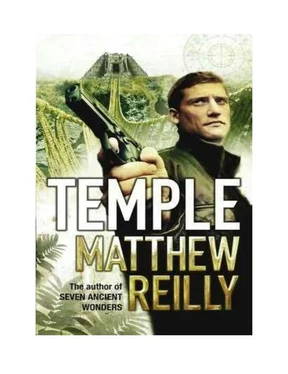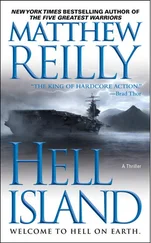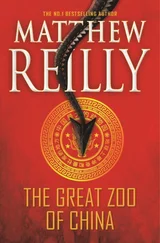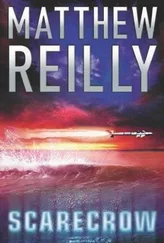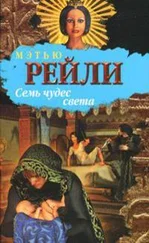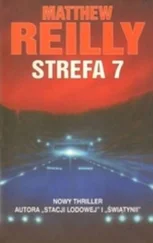Copeland continued, ‘The thing is, Professor, the Super nova that we have at present is a prototype, a workable shell. That device the device that was stolen from DARPA headquarters last night—is useless. For the simple reason that the operation of the Supernova requires the addition of one thing. Thyrium.’
Oh, great… Race thought.
‘In this regard,’ Copeland said, ‘the Supernova is not all that dissimilar to a neutron bomb. It is a fission device which means it operates on the principle of splitting the thyrium atom. Two conventional thermonuclear warheads are used to split a subcritical mass of thyrium, unleashing the mega-explosion.’
‘Okay, wait a second,’ Race said. ‘Let me get this straight.
You guys have built a weapon—a weapon that is capable of destroying the planet—that is dependent upon an element that you don’t even have yet?’
‘That’s correct,’ Copeland said.
‘But why? Why is America building a weapon that can do all this?’
Copeland nodded. ‘That’s always a difficult question to answer. I mean—’
‘There are two reasons,’ a deeper voice said suddenly from behind Race.
It was Frank Nash.
Nash nodded at the manuscript in Race’s lap. ‘Have you found the location of the idol yet?’
‘Not yet.’
‘Then I’ll make this quick so you can get back to work. First of all, what I am about to tell you is of the utmost secrecy. There are sixteen people in the country who know what am I about to tell you and five of them are on this plane. If you mention any of this to anyone after the completion of this mission, you’ll spend the next seventy-five years in jail. Do you understand me, Professor?’
‘Good. The justification for the construction of the Supernova is twofold.
The first reason is this. About eighteen months ago, it was discovered that state-funded scientists in Germany had begun the secret construction of a Supernova.
Our response was simple: if they were going to build one, so were we.’
‘That’s great logic,’ Race said.
‘It’s exactly the same logic Oppenheimer used to justify building the atomic bomb.’
‘Geez, you’re standing on the backs of giants there, Colonel,’ Race said drily. ‘And the second reason?’
Nash said, ‘Professor, have you ever heard of a man named Dietrich von Choltitz?’
‘No.”
‘Commanding-General Dietrich von Choltitz was the Nazi general in charge of the German forces in Paris at the time of the Nazis’ withdrawal from France in August of 1944. After it became apparent that the Allies were going to retake Paris, Hitler sent Choltitz a communique. It ordered Choltitz to set thousands of incendiary devices all over the city before he left … and then, after he was gone, to blow Paris sky-high.
‘Now, to von Choltitz’s credit, he disobeyed the order. He didn’t want to go down in history as the man who destroyed Paris. But what is important here is the logic behind Hitler’s order. If he couldn’t have Paris, no-one could.’
‘So what are you saying?’ Race said warily.
‘Professor, the Supernova is but one evolutionary step in a highlevel strategic plan that has existed in U.S. foreign policy for the last fifty years. That plan is called the Choltitz Plan.’
‘What do you mean?’
‘What I mean is this. Did you know that throughout the Cold War, the U.S. Navy had standing orders to ensure that at any given time there were a number of nuclear ballistic missile submarines stationed at certain strategic locations around the world. Do you know what those submarines were there for?’
‘What?’
‘The orders those subs had were very simple. Should the Soviet Union in any way defeat the United States in any sudden or unforeseen engagement, those boomers had orders to launch a rain of nuclear missiles not just on Soviet targets, but on every major city on the European and U.S. mainlands.’
‘What!’
‘The Choltitz Plan, Professor Race. If we can’t have it, no-one can.’
‘But this is on a global scale…’ Race said in disbelief.
‘That’s right. That’s exactly right. And therein lies the reason for the creation of the Supernova. The United States is the most dominant nation on this earth. Should any nation seek to alter that situation, we will inform them of our possession of a workable Supernova. If they take further steps and a conflict ensues and the United States is beaten—or worse, crippled—then we will detonate the device.’
Race felt a knot tighten in his stomach.
Was this for real? Was this policy? If America could not control the world, it would destroy it?
‘How can you build something like that?’
‘Professor Race, what if China decided to wage war against the United States? What if they won? Would you have the American people under the rule of a Chinese regime?’
‘But you’d rather die?’
‘Yes.’
‘And take the rest of the world with you,’ Race said. ‘You guys must be the sorest losers of all time.’
‘Be that as it may’ Nash said, changing his tone, ‘the law of unintended consequences has taken its effect on this situation.
News of the creation of a device with the potential to destroy the planet has brought other parties out of the woodwork, parties who would see such a weapon as a powerful bargaining chip in their own crusades.’
‘What kind of parties?’
‘Certain terrorist groups. People who if they got their hands on a workable Supernova would hold the world to ransom.’
‘Right,’ Race said, ‘and now your Supernova’s been stolen, probably by terrorists.’
‘That’s correct.’
‘You opened Pandora’s box, didn’t you, Doctor Nash.’
‘Yes. Yes, I’m afraid we did. And that’s why it is imperative that we get hold of that idol before anyone else does.’
With that, Nash and Copeland left Race alone with the manuscript once again.
Race took a moment to gather his thoughts. His mind was swirling.
Supernovas. Global destruction. Terrorist groups. He found it difficult to concentrate.
He shook it all away, forced himself to focus, found his place in the manuscript again—the part where Renco and Alberto Santiago had just blasted their way out of the besieged city of Cuzco.
Then Race took a deep breath, adjusted his glasses and entered the world of the Incas once again.
We raced through the night, Renco, Bassario and myself, spurring our horses on, making them gallop faster than they had ever done so before. For behind us, close behind us, were the Spaniards—Hernando and his legion of mounted troops, galloping across the countryside, hunting us like dogs.
After departing through the northern gates of the Cuzco valley we veered right, heading to the northeast. We came to the Urubamba River—the same river that had held Renco’s prison hulk—and crossed it not far from the town of Pisac.
And thus began our journey, our desperate escape through the wilderness.
I will not trouble you, dear reader, with every trifling incident of our arduous journey, for it went for many days and the incidents that took place during it were far too numerous. Rather, I shall mention only those occurrences which are pertinent to my grander tale.
We were headed for a village named Vilcafor—so Renco informed me—of which his uncle was the chieftain. This village was to be found in the foothills of the great mountains far to the north, at the point where those mountains met the great rainforest to the east.
Apparently, Vilcafor was a secret citadel town heavily fortified and well defended what was maintained by the Incan nobility for use in times of crisis. Its location was a carefully guarded secret, and it could be found only by following a series of stone totems placed at certain intervals in the rainforest, and then only when one knew the code to find the totems. But to get to the rainforest, first we had to traverse the mountains.
Читать дальше
